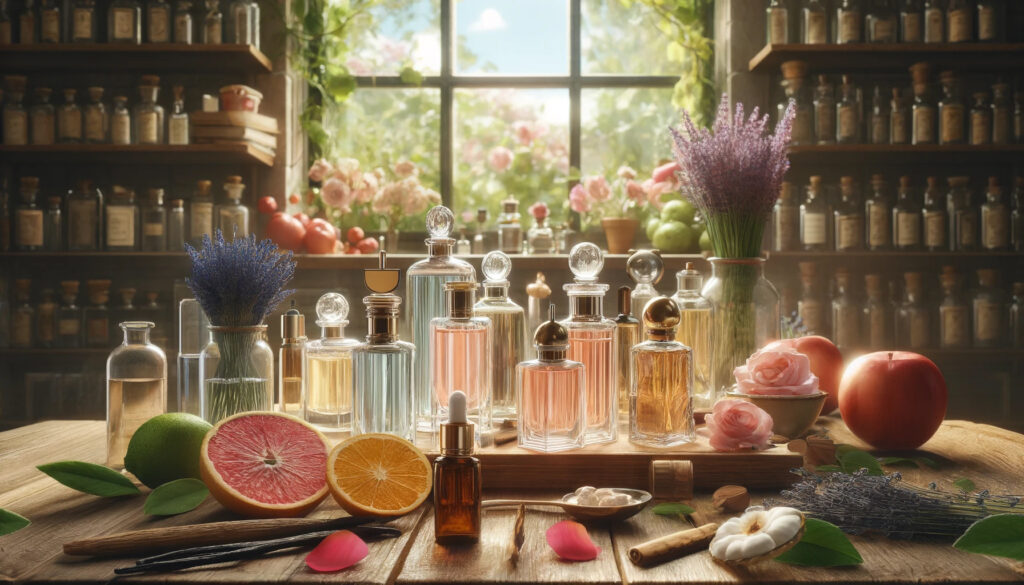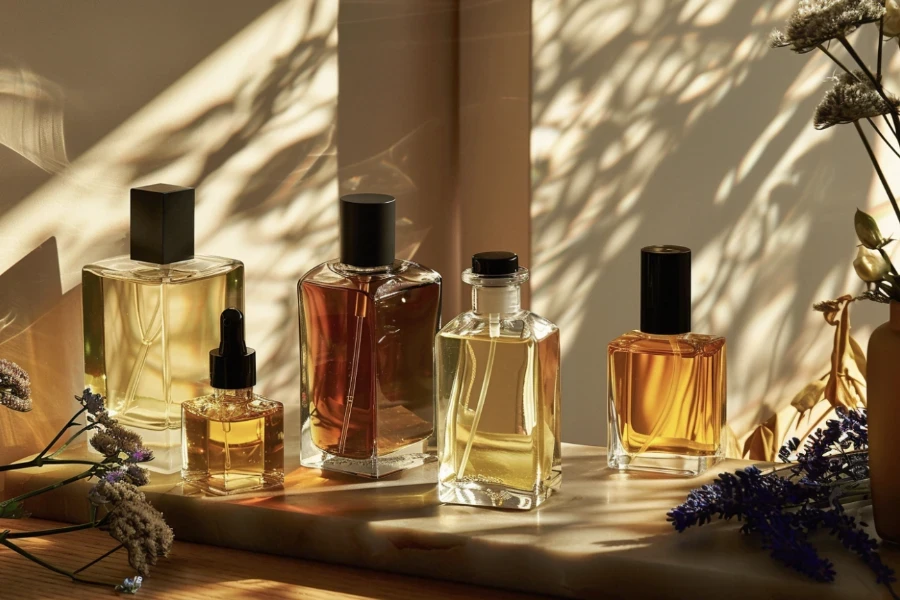The Art of Perfumery: Creating Signature Scents with Essential Oils
Perfume, in its essence, is more than just a pleasant fragrance. It is an art form that dates back centuries, captivating our senses and evoking memories with just a whiff. Imagine the allure of a delicate floral bouquet or the sophistication of a musky blend lingering in the air—each perfume tells a unique story, crafted meticulously by perfumers who are masters of their craft.
What is Perfumery?
At its core, perfumery is the art and science of creating fragrances. It involves blending aromatic substances—often natural essential oils extracted from flowers, fruits, spices, and woods—with other ingredients to compose a harmonious scent. These scents can range from light and airy to deep and complex, each designed to evoke specific emotions or impressions.
The Key Aspects of Perfumery
1. Ingredients and Raw Materials:
Essential oils are the building blocks of perfumery. They are extracted through various methods such as distillation or cold-pressing, preserving the pure essence of the botanicals. For instance, lavender oil brings a calming floral note, while cedarwood oil adds a grounding woody undertone.
2. Composition and Blending:
Creating a perfume is akin to composing music. Perfumers carefully blend different oils, known as "notes," to create a balanced fragrance pyramid. This pyramid consists of top notes (initial impression), heart notes (main body of the scent), and base notes (linger after the perfume dries down).
3. Techniques and Expertise:
Perfumers undergo rigorous training to understand the nuances of scent creation. They learn to balance proportions, understand olfactory families (floral, oriental, woody, etc.), and innovate while respecting traditional techniques.
The Relevance of Perfumery Today
In today's world, where personal expression and sensory experiences hold profound significance, perfumery remains as relevant as ever. Beyond its role in personal grooming, perfume has cultural and psychological implications:
Personal Expression:
Your choice of perfume can speak volumes about your personality and mood. It becomes a signature, leaving a lasting impression on others.
Emotional Impact:
Fragrances have the power to evoke memories and emotions. A familiar scent can transport you back in time, triggering nostalgia or comfort.
Artistic Expression:
Perfumery is a blend of art and science, appealing to those with a creative flair and a keen sense of smell.
Insights and Anecdotes
Consider the story of Coco Chanel, whose Chanel No. 5 revolutionized perfumery by introducing aldehydes—synthetic compounds that enhance fragrance longevity and complexity. This innovation not only changed the perfume industry but also cemented Chanel No. 5 as an iconic scent still cherished today.
Or take the case of niche perfumers like Jo Malone, who built an empire by blending unexpected combinations like lime basil and mandarin, challenging conventional perfume norms and catering to individual tastes.
Conclusion
The art of perfumery is a sensory journey that blends tradition with innovation, and science with creativity. Whether you're drawn to the floral sweetness of rose or the exotic allure of patchouli, each fragrance tells a story of craftsmanship and passion. As you explore the world of perfumery, consider how scents enrich our lives, evoke emotions, and define our personal narratives. Dive deeper into this captivating art form, and discover the magic of creating your signature scent with essential oils.
Perfumery invites you to indulge in the olfactory wonders that surround us, reminding us that beauty truly lies in the nose of the beholder.
Intrigued? Why not explore further into the enchanting world of perfumery and uncover your own signature scent journey? Your senses await, ready to be captivated by the artistry of fragrance creation.







Comments
Post a Comment